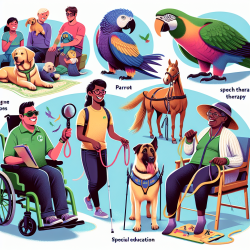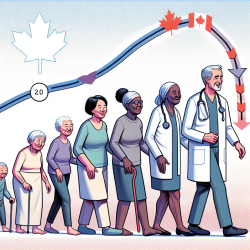Understanding and improving asyntactic comprehension in individuals with post-stroke aphasia is a critical aspect of speech-language pathology. A recent study published in the Canadian Journal of Speech-Language Pathology and Audiology (CJSLPA) offers valuable insights into this area. The study, "Asyntactic comprehension in individuals with post-stroke aphasia," by Poulin et al. (2022), compares the comprehension abilities of individuals with post-stroke aphasia using two clinical tools: the Protocole Montréal-Toulouse d'examen linguistique de l'aphasie (MT-86) and the Batterie d'évaluation de la compréhension syntaxique (BCS).
The research aimed to determine how individuals with post-stroke aphasia comprehend different sentence structures, specifically canonical (e.g., active, subject-subordinate, cleft subject) and non-canonical sentences (e.g., object-subordinate, cleft object, passive, truncated passive). The study involved 30 participants with post-stroke aphasia who were assessed using sentence-image matching tasks from both test batteries. The findings provide significant implications for clinical practice.
Key Findings
- Individuals with post-stroke aphasia demonstrated better comprehension of canonical sentences compared to non-canonical sentences.
- There were similarities and differences in comprehension performance patterns between the MT-86 and BCS tools.
- Canonical sentences (active, subject-subordinate, cleft subject) were easier to understand than non-canonical sentences (object-subordinate, cleft object, passive, truncated passive).
Clinical Implications
For practitioners, these findings highlight the importance of focusing on sentence structure during therapy. Here are some actionable steps based on the study's outcomes:
- Utilize Both Tools: Incorporate both the MT-86 and BCS in assessments to get a comprehensive understanding of a patient's comprehension abilities. The MT-86 provides a broad evaluation, while the BCS offers detailed insights into specific syntactic challenges.
- Focus on Canonical Sentences: Begin therapy with canonical sentences to build confidence and comprehension skills before introducing more complex non-canonical sentences.
- Document Observations: Keep detailed records of the types of sentences that pose difficulties for each patient. This data-driven approach can help tailor therapy sessions to individual needs.
- Continuous Education: Stay updated with the latest research and clinical tools to enhance therapy outcomes. Encourage participation in workshops and training sessions focused on aphasia and sentence comprehension.
Encouraging Further Research
While the study provides valuable insights, it also opens avenues for further research. Practitioners are encouraged to explore the following areas:
- Longitudinal Studies: Investigate how comprehension abilities evolve over time with consistent therapy focused on both canonical and non-canonical sentences.
- Impact of Other Linguistic Factors: Examine how factors like sentence length, verb arguments, and working memory affect sentence comprehension in individuals with aphasia.
- Personalized Therapy Approaches: Develop and test personalized therapy approaches based on individual patient data and specific comprehension challenges.
By integrating these research findings into clinical practice, practitioners can enhance therapy outcomes for individuals with post-stroke aphasia. This data-driven approach not only improves comprehension skills but also empowers patients to communicate more effectively.
To read the original research paper, please follow this link: Asyntactic comprehension in individuals with post-stroke aphasia.










